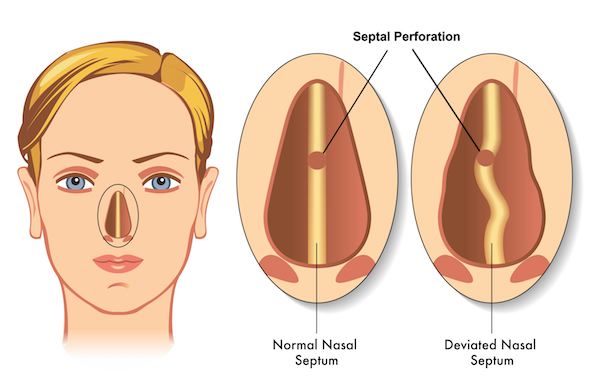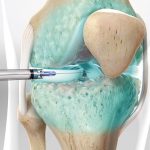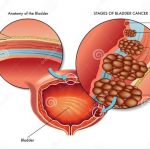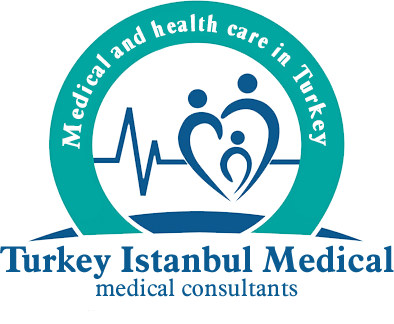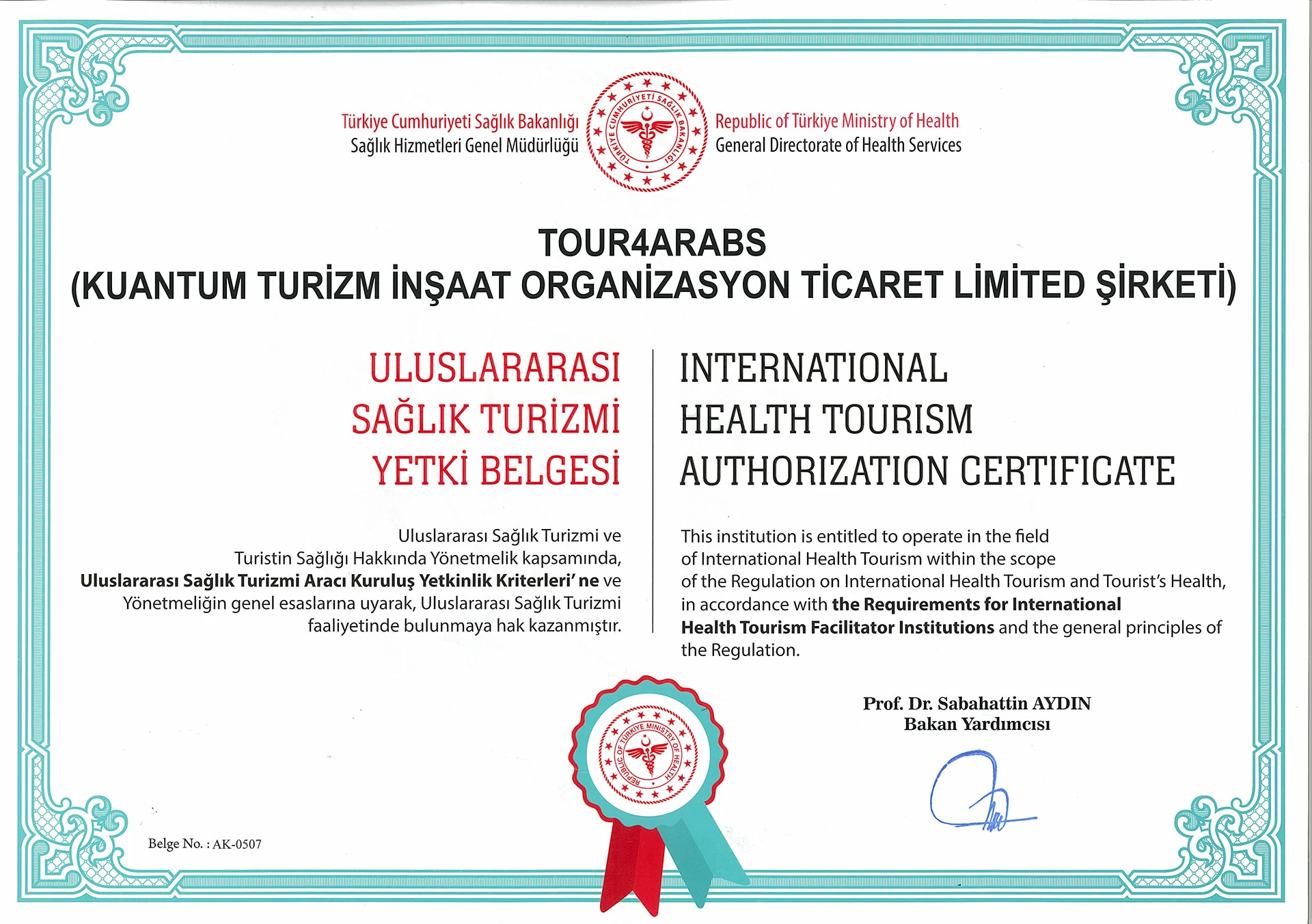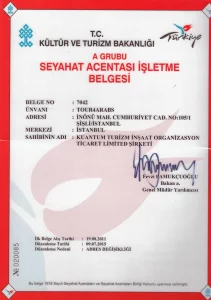What is Nasal Septum Perforation (NSP)?
Nasal Septum Perforation is the perforation of the middle cartilage and/or bone nasal septum that divides the nostrils into two. In most cases, it does not cause discomfort, but symptomatic patients complain of recurrent nosebleeds, nasal crusting, whistling, headache, dryness and nasal congestion. Anterior perforations usually cause complaints, while posterior ones are not symptomatic.
What are The Causes of Nasal Septum Perforation (NSP)?
- The causes of septum perforation (NSP), which occurs as a complication of nose surgeries, are as follows:
- NSP can be seen in trauma such as nose surgeries, septal hematoma, nose piercing, constant nose picking, septal fracture.
- Using nasal spray for a long period of time may pierce the wall separating the nostrils.
- Cocaine use can cause NSP.
- Problems such as inflammation, that is, collagen vascular diseases, can create a hole in the nose.
- Infectious diseases can cause NSP in the nose.
- Symptoms may occur in those who work in environments with corrosive chemicals, such as chrome work.
- Tumors can cause holes in the nose.
What are The Symptoms of Nasal Septum Perforation (NSP)?
While nasal septum perforation disturbs some patients greatly, it does not show any symptoms in some patients. Symptoms may vary from person to person depending on the location, causes and size of the perforation. As the size of the perforation increases, airflow in the nose is impaired.
We can list the complaints caused by nasal septum perforation as follows;
- Crusting in the nose.
- Bleeding in the nose.
- Whistling sound that occurs when breathing.
- Nasal congestion.
- Pain
- Runny nose.
- Postnasal drip.
- Inflammation of cartilage.
- A large perforation located in the front may cause loss of nasal dorsal support and lead to nasal collapse.
How to Diagnose Nasal Septum Perforation (NSP)?
There are two ways to diagnose nasal septum perforation.
These;
- Intranasal examination is performed by slightly opening the nasal wings with the help of a tool. Anteriorly located perforation can be easily detected this way.
- Endoscopy examination should be performed to detect the perforation located in the posterior part.
Both methods are painless and done in a short time.
How is Nasal Septum Perforation (NSP) Treated?
Treatment is divided into 3 main categories:
- Medical Treatment
- Placement of Septal Button (Or Septal Prosthesis)
- Surgical Treatment
Medical Treatment
Medical treatment is planned to reduce symptoms rather than correct the perforation.
To this end;
- Washing the inside of the nose with salt water
- Mucosa moisturizer,
- Vaseline, which reduces fluid loss from the mucosa,
- Glyzerin derivatives,
- Vitamin A
- Drops, sprays or ointments containing vitamin E can be used.
Septal Button (Or Septal Prosthesis)
Septal button placement can be applied as a temporary or long-term solution. Soft silicone-derived buttons placed inside the hole allow the hole between the nasal cavities to be closed.
Surgical Treatment (Septum Perforation Surgery )
Surgical repair can provide a definitive solution, but the failure rate can be up to 60%, especially in large holes. The two main reasons for this high failure rate are inadequate blood flow and damaged surgical field. More than 90% of small holes can be sealed reliably.
Success rates in modern 2-stage procedures can exceed 80%. Although many techniques have been described for the repair of septum holes, a standard surgical protocol has not been established.
The cartilage residues taken from the back or upper part of the septum can be pulled to the middle of the perforation after the dead epithelial tissue at the edges of the perforation is removed, and hole closure can be supported with regional mucosal shifting flaps.
There are many modified techniques on the subject. In the preoperative period, the use of saline water and moisturizing drops, ointments and sprays to moisturize the nasal mucosa, which has dried out by being exposed to linear air flow for a long time, may affect the success of the operation.
What Should Be Considered After Nasal Septum Perforation Surgery?
Being careful after septum perforation surgery will speed up the healing process.
- Especially to protect the nose against impacts that may come from outside,
- Avoiding oil-based nasal moisturizers,
- Consuming foods with high water content,
- Avoiding smoking,
- Avoid inserting foreign objects into the nose or intervening with fingers.
- Pay attention to nasal cleaning,
- These are some of the precautions that can be taken after surgery.
Additionally, avoiding strenuous sports during the recovery process is one of the points that patients can pay attention to.
However, following your surgeon’s warnings and recommendations will be very beneficial for a faster recovery.
Many surgeons emphasize that patients can clean their nose with ocean water spray during the post-operative recovery period and get effective results.
